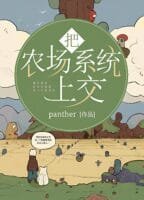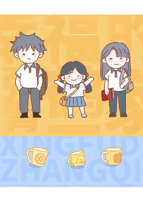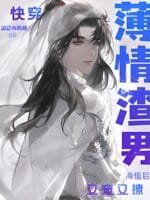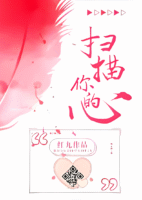Farm System C83
by MarineTLChapter 83
“On August 1st, a locust outbreak occurred in southeastern Zhongnan, Shaan Province. The disaster may be related to the prolonged heatwave in the region.”
“On August 2nd, Longxia established a Central Locust Task Force, led by Academy of Engineering academician Xiang Qingchuan. The team is expected to arrive in Zhongnan, Shaan Province by 8 PM.”
“The locust outbreak in Shaan Province is classified as a sudden disaster. Both the central and local governments of Longxia are taking it extremely seriously.”
………
From August 1st to 2nd, Longxia issued seven emergency news bulletins, all centered on one event: a locust plague in Shaan Province.
“It’s already raining acid—how are the locusts still alive?”
“I’m from Zhongnan in Shaan Province. Yesterday, the whole village went out to the fields. They were crawling with locusts.”
“Didn’t the acid rain kill them off?”
………
Locusts are insects from the Acrididae family. They feed on crops and pasture, causing severe damage to farmland and agriculture.
Locust outbreaks are usually triggered by floods or droughts. But now, due to the Harma phenomenon, vegetation is deteriorating and global temperatures have risen by 5–10°C. To prevent potential locust disasters, Longxia began nationwide geological monitoring as early as February. According to the data, 85% of the country’s land has been corroded by acid rain, making it unsuitable for insect eggs to hatch and develop.
Acid rain–damaged land is inhospitable to animal growth and insect development. This is a globally accepted fact. And yet, the locusts in Shaan Province have upended everything people thought they knew.
“Could they be mutant locusts?” one netizen joked.
Humans and animals are constantly evolving. To adapt to their environment, both undergo changes. Chameleons and dead-leaf butterflies, for example, change color to blend in. Everyone is evolving to survive. If locusts can mutate, then what about cockroaches, rats, mosquitoes…
Just imagining it made people’s scalps tingle.
“Just picturing a three-meter-long rat is enough to make me lose it.”
“Ugh, that’s disgusting.”
“Is this the beginning of a global catastrophe?”
……
These animals are just as destructive as locusts. If they all mutate, how can the world go on?
“If I ever saw a three-meter-long rat in my house, I’d rather die.”
“And we have to cremate the dead. If we bury them, who knows what might crawl out of the ground…”
“I’m gonna puke!”
……
The more people talked, the more nauseated they felt.
“Is this Wangjia Village?”
“Yeah, it’s the worst-hit area this time…”
……
While the whole country was caught up in the discussion, Xiang Qingchuan and the Shaan’an Agricultural Bureau arrived at Wangjia Village.
Xiang Qingchuan is the head of Longxia’s biology task force and a nationally renowned biological research academician. The locust outbreak was sudden, and he and his team were urgently dispatched to investigate.
“Academician Xiang, Director Zhao…” As soon as the group entered the village headquarters, the reception staff greeted them with care.
It was now 9:30 PM. After a bit of small talk, the village team gave a full report. The locusts had started increasing a week ago, surged on the 31st, and by today had formed a full-blown swarm. After two hours of discussion, it was too late to continue, so everyone decided to rest at the village headquarters for the night.
Xiang Qingchuan was assigned a room on the north side of the second floor. As he walked back, he glanced sideways. “Need a couple of shots?”
“No need,” replied a young man in his early twenties. He had a calm and refined appearance—this was Qin Yun. At the moment, he was wearing a windbreaker and a blue cap, completely out of place in the sweltering summer heat.
Qin Yun had caught a nasty summer flu.
Seeing that Qin Yun’s mind was still clear, Xiang Qingchuan asked his assistant to get him some medicine, then returned to his room with a sigh. Qin Yun went into the room next door and collapsed onto the bed, utterly exhausted. As a farmhand, his usual range of activity was limited to the farm and the seed laboratory. Now, in early August, he had left the farm for a simple reason: the system had updated.
Lying on the bed for a while, Qin Yun opened his System Interface.
Host Name: Qin Yun
Personal Mission: Fruits of Planting
(As a farm owner, it seems you’ve never participated in non-farm planting… Please engage sincerely in planting labor and experience the Fruits of Planting!)
Mission Requirement: Participate in 20 planting tasks (outside the farm)
Mission Reward: 1x Mysterious Planting Package
Note: Personal missions can be canceled at any time.
……
After reading the mission description, Qin Yun decisively clicked “Accept.” According to the system, he needed to complete twenty planting tasks outside the farm. It seemed like a simple mission. After careful planning with his team, he set off across the country to participate in agricultural work.
Harvesting wheat, pulling rice seedlings, digging sweet potatoes…
Qin Yun toiled nonstop for a week. Everyone thought the mission would be a breeze. But the mission progress: 0%.
It wasn’t just Qin Yun—now even the Longxia Team realized something was off. They reviewed the mission requirements carefully and focused on three key phrases: “sincerely,” “experience the fruits,” and “limited to Acid Rain Crops.”
“Limited to Acid Rain Crops” was a concrete standard. But “sincerely” and “experience the fruits” were more abstract.
After analysis, the team concluded that perhaps the process had been too goal-oriented and failed to meet the system’s standard of “sincerity.” They decided to slow down and let Qin Yun engage in the work more freely and intuitively.
Time was tight. The team gave themselves one month. If Fruits of Planting couldn’t be completed, the farm would have to temporarily abandon the mission.
While the Longxia Team was still figuring out how to be “sincere” and “experience the fruits,” the sudden locust outbreak in Shaan Province occurred. After some discussion, Qin Yun decided to explore the mission requirements through hands-on experience.
And so, Qin Yun followed the biology team to Wangjia Village.
It was now 11:20 PM. Just as Qin Yun was about to turn off the lights and sleep, a rhythmic knock came at the door.
Qin Yun opened it to find an assistant holding cold medicine. “Secretary Qin.”
“Thanks.” Qin Yun gratefully took the pills. He’d caught the flu after flying across most of Longxia with the team. Maybe it was his constitution, but no matter how many shots or meds he took, his colds never went away. He usually just toughed it out.
Under the assistant’s watchful eye, Qin Yun obediently took the medicine.
The next morning, Qin Yun followed Xiang Qingchuan and the others to the cornfield on the eastern side of Wangjia Village.
“Whoosh, whoosh!”
“Rustle, rustle!”
……
It was 9 AM. The sky was overcast with heavy, low-hanging clouds. Villagers were waving clothes, fans, and whatever else they could find. Due to serious soil erosion in Wangjia Village, the farmland was patchy and uneven. At first, Qin Yun didn’t notice anything unusual, but as he got closer, he realized—those weren’t clouds. They were swarms of locusts!
The locusts were devouring the cornfields, their wings vibrating with a loud, grating buzz—far more irritating than the hum of flies.
“Holy crap…”
“All of these are locusts?”
Staff from Shaan’an City had arrived as well. It was everyone’s first time seeing a real-life locust plague. A few reporters with cameras were visibly shaking as they filmed the swarms.
“Put on your jackets! Don’t leave any skin exposed!” Xiang Qingchuan shouted urgently. Locusts don’t usually bite people, but in large swarms, they might mistake humans for plants. Whether these were toxic or not wouldn’t be known until the evening’s research report. They had to be extremely cautious!
At his command, everyone quickly donned the protective gear they’d prepared in advance. Their faces were covered in layers, leaving only a pair of sunglasses exposed.
Bang!
Just as they were about to enter the locust-infested field, a loud thud came from the distance.
“Is anyone hurt?” Xiang Qingchuan and the others rushed over.
“I’m fine, just fell,” said a middle-aged man around fifty. His elbow and knee were scraped raw, and blood was trickling out.
“The village group chat said not to come today!” the village committee director rushed over, flustered.
“I was worried, just wanted to take a look,” the man said, scratching his head.
This was Zhao Shunhai. Ever since the locusts were discovered two days ago, he hadn’t had a single good night’s sleep.
Every time he closed his eyes, he saw the crops in the fields completely devoured by locusts. For the past two days, he’d been lurking in the Wangjia Village group chat. Some folks were suggesting bringing in ducks to eat the locusts, others thought spraying pesticides would work… But even if there wasn’t a crisis, where would they find that many ducks on such short notice?
After discussing with a few villagers, they finally decided to spray pesticides to fight the infestation.
Even though the group chat had sent out a notice telling people to stay out of the fields, every day without pesticide meant more crops lost. The locusts hadn’t reached the terrifying levels shown on TV yet—he had to act fast. So last night, he spent the whole night mixing pesticides, and before dawn today, he was already out spraying. He wasn’t alone anymore—now every household in the village had joined in.
Half the crops were already gone. They had to save the rest.
“I’m fine. We rural folks are tough,” Zhao Shunhai said, sitting on the ground for half a minute before struggling to his feet to continue spraying.
“You’re using Cyfluthrin?” Xiang Qingchuan pointed to the label on the pesticide tank.
“Yeah, that’s the one…” Zhao Shunhai didn’t really know what Cyfluthrin was—just that this particular pesticide worked pretty well.
Cyfluthrin was a widely used pesticide, effective against cabbage loopers, wireworms, cockroaches, and woodlice.
Xiang Qingchuan put on gloves and grabbed a locust, then sprayed it directly with the pesticide. The locust was knocked to the ground by the blast. Just as everyone thought it was dead, it twitched its wings and, after about thirty seconds, shakily took off again.
“Stop spraying. It’s useless.”
Xiang Qingchuan set the pesticide down. Locusts were notoriously hard to deal with. Usually, you’d need specialized microsporidia to control them. While pesticides had some effect, they didn’t do much real damage. Plus, these locusts were one to two centimeters larger than normal—likely resistant to the chemicals.
“Everyone stop spraying. Locusts can bite and spread the flu. Head back home, now,” Xiang Qingchuan clapped his hands and called out.
“Just a little longer.”
“No harm in spraying more.”
“Maybe it’ll work if we keep at it.”
…
The villagers were reluctant to leave. Some, while talking, snuck in another couple of sprays.
“Stop it. This stuff’s bad for your health,” Xiang Qingchuan frowned. The chemical smell here was way over the safe limit. After speaking, he turned to the village committee director.
“Everyone, go home now. Don’t interfere with the biology team’s work!”
“Anyone who stays out here won’t get their year-end bonus!”
The Village head worked hard to maintain order. Faced with the dual threat of “interfering with work” and “losing year-end benefits,” the villagers finally, though reluctantly, dispersed.
Half an hour later, the fields were quiet again.
“Director Xiang,” the Village head looked at Xiang Qingchuan.
Xiang Qingchuan didn’t mind the odd titles like “Director” or “Biology Institute.” He turned to the researchers behind him. “Take samples.”
This locust plague had come on too suddenly. Though other colleagues were analyzing samples back at the lab, some studies had to be done on-site. Over the next three hours, the team carefully collected samples and recorded data, while locusts buzzed endlessly overhead. At first, the researchers tried to swat them away, but once they were fully suited up in protective gear, they gradually got used to it.
“This is just too much,” said Zhao Xiaoman, a journalist from the provincial press. Her eyes took in the scene: locusts darkening the sky, corn stalks shredded to pieces, researchers in white coats taking notes…
Zhao Xiaoman wasn’t usually an emotional person, but looking at this seemingly ordinary scene, she felt a crushing ache in her chest, like a bulldozer had rolled right over her heart.
At 5 p.m., the Biology Group packed up and returned to the Village Brigade.
“We’ve got to double down on the research. We can’t let this plague spread.”
Xiang Qingchuan sipped his rice porridge and sighed. According to their monitoring, the locust outbreak was centered in southeastern Shaan Province, one of the two hottest and driest regions in the country. Their mission was to contain this disaster.
By 7:20 p.m., everyone was gathered in the courtyard for dinner. They were only halfway through the meal when a researcher suddenly jumped up in excitement. “The analysis results are in!”
From the moment the locusts were first reported, the Biology Group had begun testing and analyzing data.
Due to the need for caution, the entire testing process had gone on non-stop from the first of the month until now—three sleepless days.
Hearing this, Xiang Qingchuan didn’t even finish his meal. He grabbed a tablet and read the report.
Test results:
1. The mutated locusts carry acid-resistant cells, allowing them to lay eggs and develop in drought-stricken regions affected by Acid Rain.
2. Aside from elevated heavy metal levels, no malignant toxins were found in their bodies.
3. No human-transmissible viruses detected in the locusts.
“Good.” Xiang Qingchuan let out a long breath of relief.
Though the locusts had developed acid-resistant mutations, they weren’t toxic and didn’t carry infectious viruses.
Based on the nature of the mutation, even if other animals mutated, they likely wouldn’t develop supernatural traits—at most, they’d show heavy metal accumulation or changes in size. Given the race against time, this was the best news they could hope for amid all the bad.
“These locust mutations aren’t just due to Acid Rain—it’s also related to the loess climate of Shaan Province.”
“Could the mutation trigger be airborne Acid Rain particles?”
“We might be able to backtrack the Acid Rain source from this…”
…
For the next half hour, the researchers engaged in a serious discussion over dinner, turning the meal into an academic conference.
“Director Xiang?” Midway through the discussion, a man hesitated at the doorway, unsure if he should enter. The research team had thirty-two members, and the Village Brigade had been converted into a temporary research institute.
“Mr. Zhao?” Xiang Qingchuan put down his chopsticks. It was Zhao Shunhai from earlier that afternoon.
“I brought three jin of pork knuckles—for everyone to get some strength back.”
Before Xiang Qingchuan or anyone else could respond, Zhao Shunhai turned and bolted.
As he ran off, he rubbed his arm. For a farmer, a few scrapes were nothing. That afternoon, he had gone home intending to wrap a cloth around the wound, but to his surprise, a team member showed up at his door with gauze and iodine. The man was the team’s accompanying medic, and seeing how badly Zhao had fallen, and knowing medical care was hard to access out here, he’d come to help bandage him up.
The whole visit took less than half an hour. It was just a small gesture from the research team—but it warmed Zhao Shunhai’s heart.
Right now, the fields were swarming with locusts.
He had almost given up hope.
But now… he wanted to believe again.










0 Comments